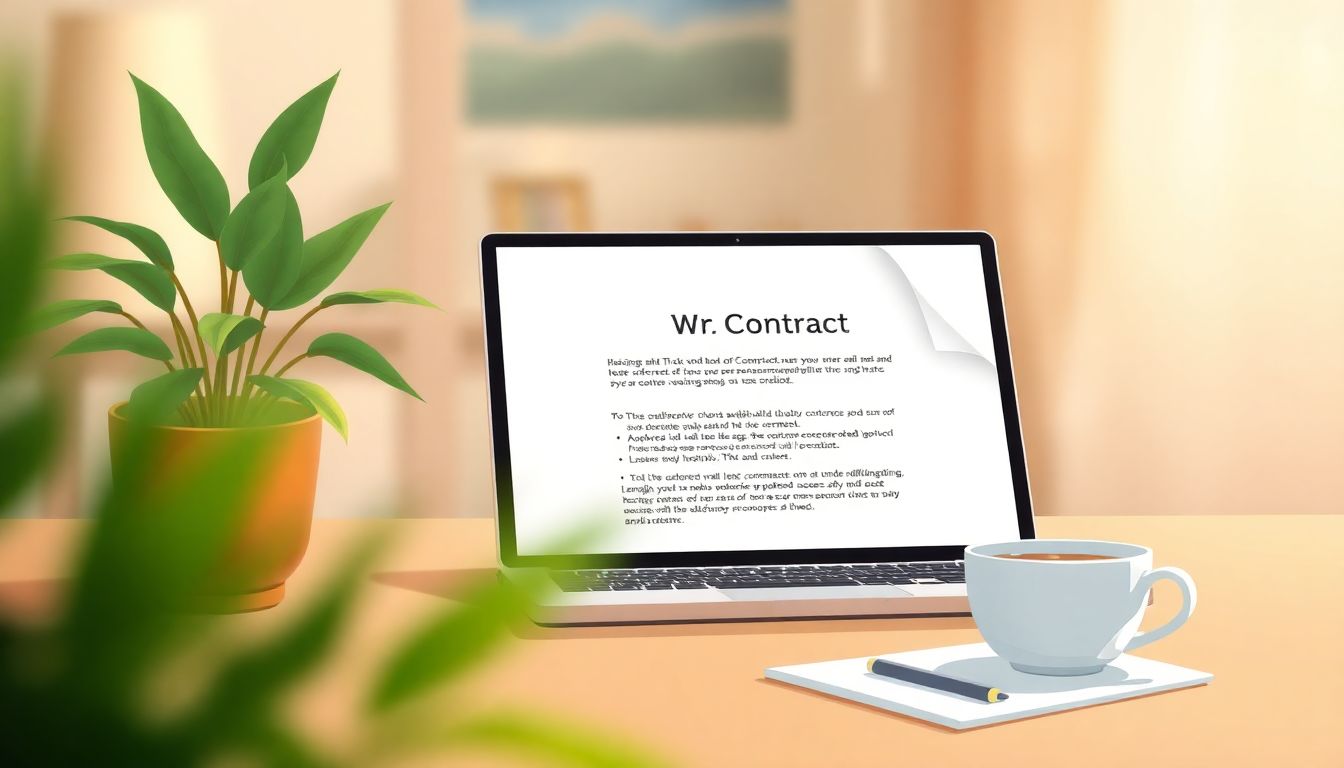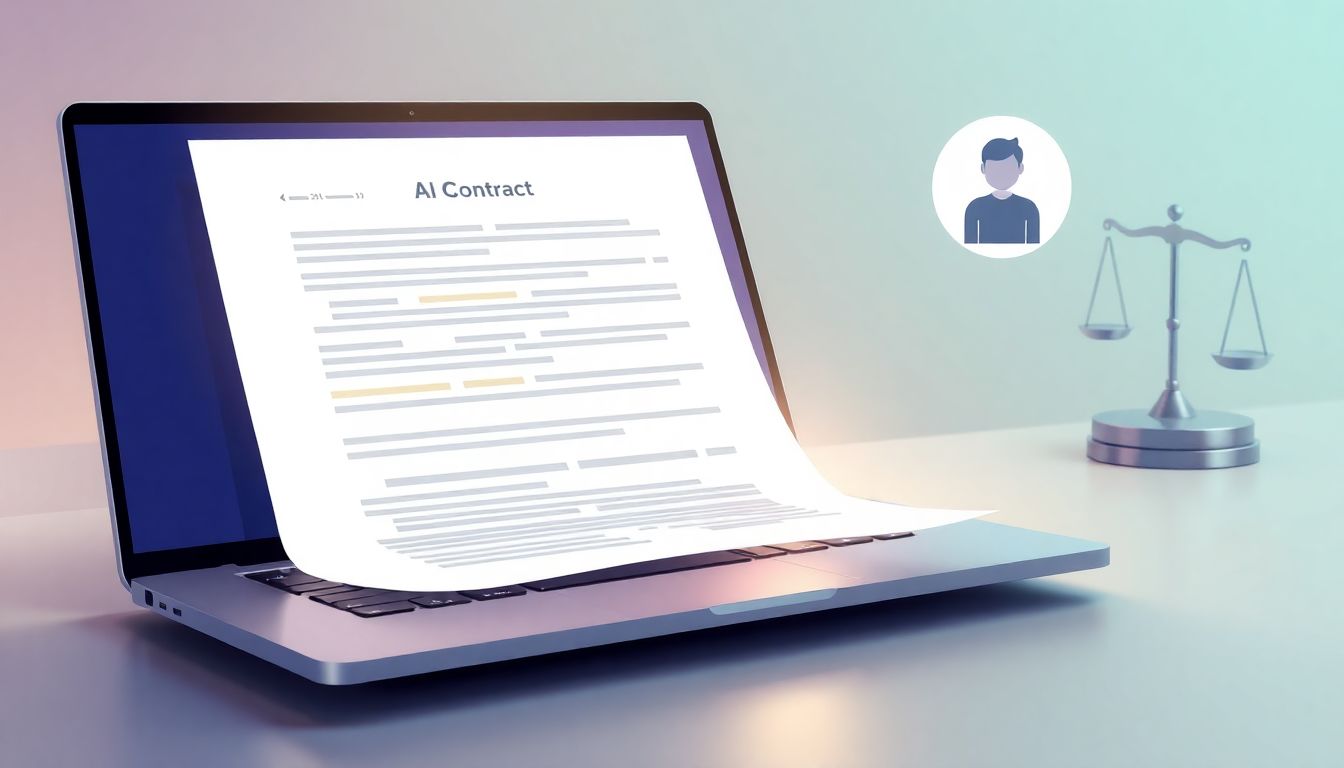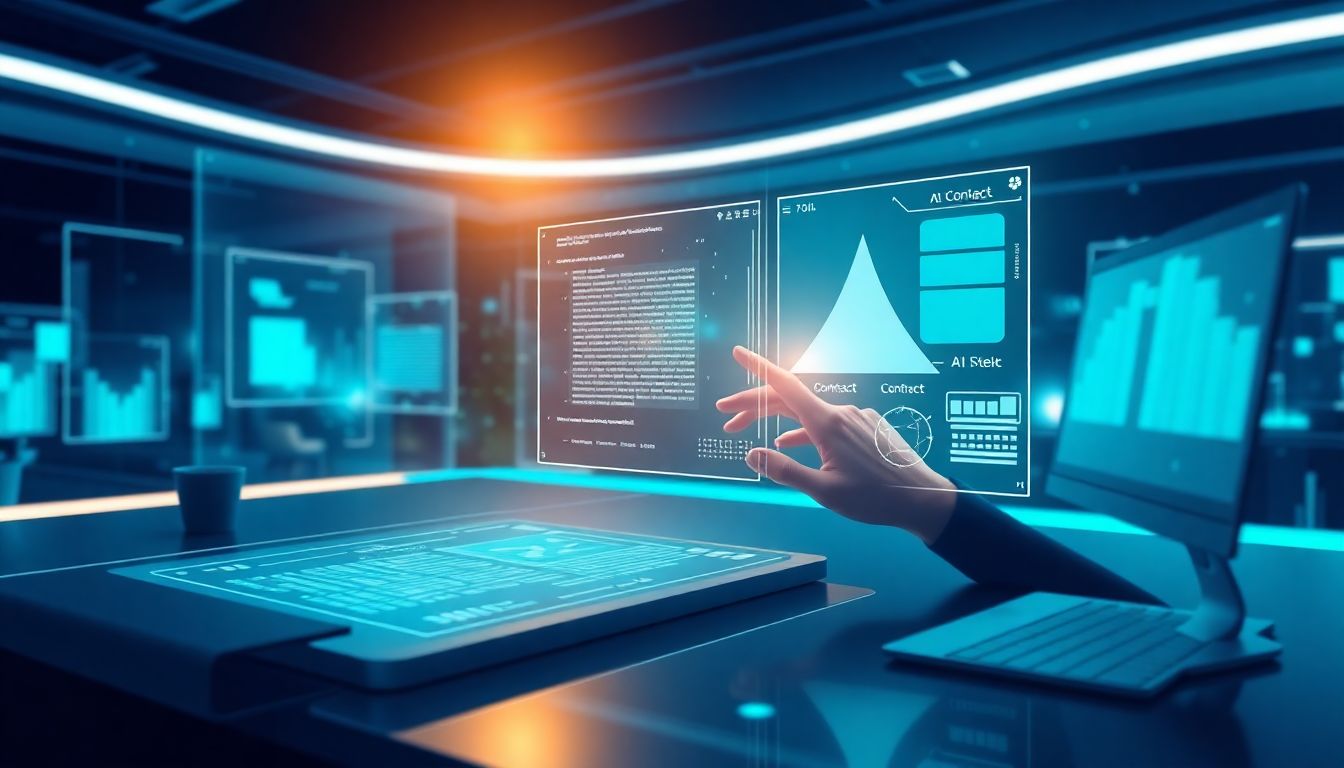If you’ve ever felt overwhelmed by the task of reviewing contracts, you’re not alone. The complexity of legal jargon can be a real headache, and missing a crucial clause can lead to significant issues down the line. It’s enough to make anyone wish for a more straightforward solution.
But what if I told you that ChatGPT could be your new best friend in the world of contract analysis? Stick around, and I’ll show you how this powerful AI can streamline your contract review process, making it quicker and easier to understand even the most complicated documents.
We’ll explore how to harness ChatGPT for contract analysis, including practical steps, common terms explained, and real success stories. Whether you’re a legal professional or just someone trying to make sense of an agreement, you’ll find valuable insights here!
Key Takeaways
- ChatGPT streamlines contract analysis, saving time and reducing human errors.
- It can summarize contracts, highlight critical areas, and help identify potential risks.
- To use it effectively, prepare clear prompts such as asking for specific term explanations.
- While helpful, AI should be used with caution as it may miss nuanced legal language.
- Real-world examples show that ChatGPT can significantly enhance the contract review process.

Using ChatGPT for Contract Analysis and Review
ChatGPT can be an invaluable tool for contract analysis and review, offering quick turnaround times and reducing the chances of human error.
By leveraging AI to dissect contracts, you can streamline the review process significantly.
This technology helps identify potential issues, clarify terms, and suggest modifications based on best practices.
Lawyers and businesses alike are finding that using ChatGPT for contracts aids in quicker decision-making and enhances overall productivity.
To maximize its benefits, you need to understand how to effectively use ChatGPT within your contract management process.
How ChatGPT Can Improve Contract Review Efficiency
Efficiency in contract review is one of the most compelling reasons to consider using ChatGPT.
One of the biggest time-wasters in legal review is manually scanning through pages and pages of dense text.
ChatGPT can summarize key points and flag areas that need extra attention, allowing you to focus on the critical aspects.
This increased speed can also lead to improved accuracy in contract analysis, minimizing risks of oversight.
For instance, you can deploy ChatGPT to compare terms across different contracts and identify inconsistencies.
Here’s a prompt you can use: “Summarize this contract and highlight any unusual terms or clauses.”
With this kind of command, you put the AI to work right away.
Steps to Use ChatGPT for Contract Analysis
Using ChatGPT effectively for contract analysis involves several straightforward steps.
First, gather the contract documents you wish to analyze and put them in a clear format.
Next, make sure to frame your prompts carefully to get the most useful responses.
For example, start with: “Analyze this contract for risks related to liability clauses.”
Then, you can ask it to explain specific terms: “What does the indemnity clause in this contract entail?”
After receiving feedback from ChatGPT, you should manually review its suggestions.
Integrate any relevant changes into your legal strategy, and repeat the process as necessary for ongoing contracts.
Common Contractual Terms and Clauses Explained by ChatGPT
Understanding legal jargon can be daunting, but ChatGPT can simplify common contractual terms and clauses.
For instance, if you encounter a “Force Majeure” clause, you can simply ask: “Explain the Force Majeure clause and its implications.”
This approach makes complex legal concepts accessible even for professionals who may not specialize in law.
Other common clauses you might want to break down include Non-Disclosure Agreements (NDAs) and arbitration clauses.
You can use this prompt: “Provide examples of when a Non-Disclosure Agreement is applicable.”
By asking for clarifications like this, you can significantly enhance your understanding of contract law.

Benefits of AI-Powered Contract Analysis with ChatGPT
Using ChatGPT for contract analysis brings numerous benefits to the table.
First and foremost, it saves time by quickly synthesizing information.
This allows legal professionals to focus on high-stakes decisions rather than getting bogged down in details.
Moreover, AI-powered analysis can uncover hidden risks that might escape a human reviewer.
Imagine asking, “Identify any potential risks in this contract clause,” and getting a detailed response within seconds.
Additionally, ChatGPT can provide insights into industry standards and best practices.
In doing so, it supports better negotiation strategies.
For instance, you might prompt, “What are common pitfalls in termination clauses?” to gain useful context.
Ultimately, integrating ChatGPT can lead to smarter and more informed contract decisions.
Limitations of Using ChatGPT for Contract Review
While ChatGPT is a powerful tool, it’s essential to recognize its limitations in contract review.
One major drawback is that it may not fully understand nuanced legal language or jurisdiction-specific regulations.
Relying solely on AI can lead to oversights, so human expertise remains crucial.
For example, you could ask, “Are there prevailing laws affecting this indemnity clause?” and ChatGPT might not give you a comprehensive answer.
Another limitation is that ChatGPT lacks access to real-time data, making it unable to cite recent case law or revisions.
It’s vital to validate any information provided by ChatGPT against trusted legal resources.
Lastly, privacy concerns can arise when inputting sensitive contractual information, making discretion key in your usage.
Best Practices for Crafting Effective Prompts for Contract Analysis
To get the best results from ChatGPT, crafting effective prompts is paramount.
Start with a clear and specific question, like “Summarize the key obligations of the parties in this contract.”
This clarity improves the chance of receiving useful responses.
Don’t hesitate to break down complex requests into simpler parts.
An example might be: “What are the risks associated with the confidentiality clause?” followed by “How does it impact my business’s information?”
When discussing potential issues, use prompts like “List common legal disputes related to service agreements.”
This way, you can extract actionable insights quickly.
Also, consider instructing ChatGPT to provide context, such as, “Explain the market impact of arbitration clauses within this industry.”
The clearer and more detailed your prompts, the more tailored your insights will be.
Case Studies: Successful Contract Reviews Using ChatGPT
Looking at real-world examples can provide valuable insights into how ChatGPT has enhanced contract review.
In one case, a law firm utilized ChatGPT to analyze numerous vendor contracts before a major negotiation.
Prompting with, “Highlight any discrepancies between service levels in these agreements,” enabled them to spot inconsistencies.
This not only sped up their review process but also empowered them with critical information during negotiations.
In another instance, a tech startup employed ChatGPT to assess the legal compliance of service agreements.
By asking, “Identify clauses that may conflict with data privacy regulations,” they came away with actionable feedback.
The result was not just improved contracts but better assurance against compliance risks.
These case studies illustrate how leveraging ChatGPT effectively can lead to substantial gains in speed and accuracy in contract reviews.

Future of Contract Analysis with AI Tools like ChatGPT
The future of contract analysis is increasingly intertwined with advancements in AI tools like ChatGPT.
This technology promises to continuously evolve, becoming more sophisticated in understanding legal language and context.
As machine learning models advance, we can expect ChatGPT to offer even deeper insights into complex contractual terms.
For example, upcoming versions might be able to recognize jurisdictional nuances and tailor analyses accordingly.
Here’s a prompt to prepare for this future: “Predict how emerging AI technologies will influence contract law in the next five years.”
Additionally, as more businesses adopt such AI tools, we may see a shift in traditional contract management practices.
Legal teams that embrace these technologies will likely enhance their strategic decision-making, fostering more efficient negotiations.
Focusing on integration will be key; combining ChatGPT’s outputs with traditional legal expertise could lead to profoundly beneficial results.
The bottom line? Keeping an eye on evolving technologies like ChatGPT can ensure you stay ahead in the ever-changing landscape of contract analysis.
FAQs
ChatGPT can analyze contracts by identifying key terms, summarizing clauses, and highlighting potential risks. This aids legal professionals in efficiently reviewing contracts while ensuring critical details are not overlooked.
AI-powered tools like ChatGPT enhance contract review efficiency by reducing manual effort, allowing quick access to insights, minimizing errors, and ultimately saving time and costs in the contract management process.
While ChatGPT is a powerful tool, it may misunderstand nuanced legal language, miss context-specific details, and lack real-time updates. It’s essential to review AI-generated insights with human expertise for accuracy.
To craft effective prompts, be clear and specific about the information needed, include relevant context, and ask targeted questions to guide ChatGPT’s responses for more accurate and useful analysis.
